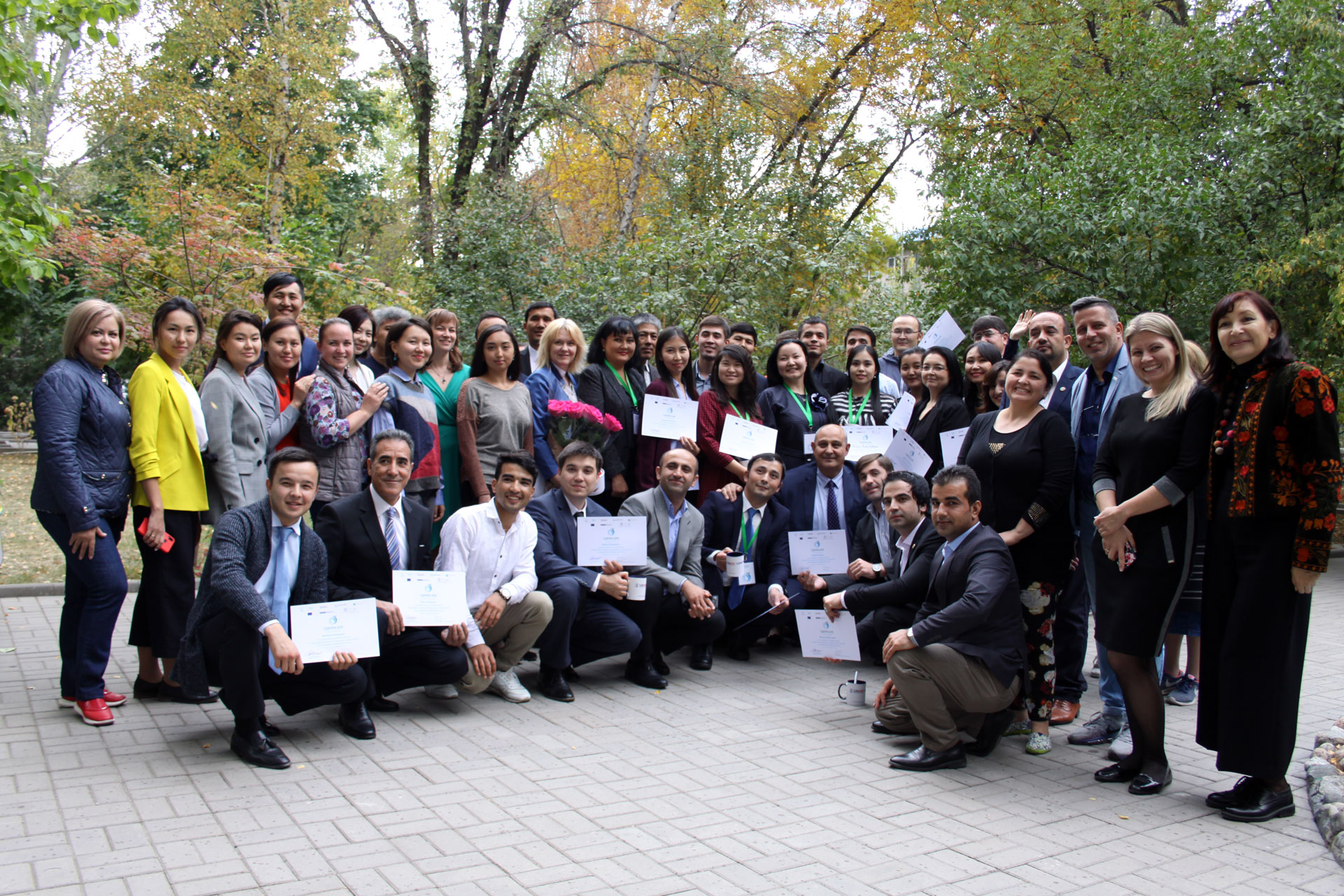
Starting from 2010, every autumn the Regional Environmental Centrе for Central Asia gathers young specialists from the region for the Central Asian Leadership Programme in Almaty. Representatives of government agencies, the academic sector and public organizations of Central Asia and Afghanistan meet together to expand their knowledge of environmental protection and leadership. CALP is the only regular integrated programme for environmental protection and sustainable development in Central Asia. Today, more than 200 graduates from the programme work in various fields throughout the region.
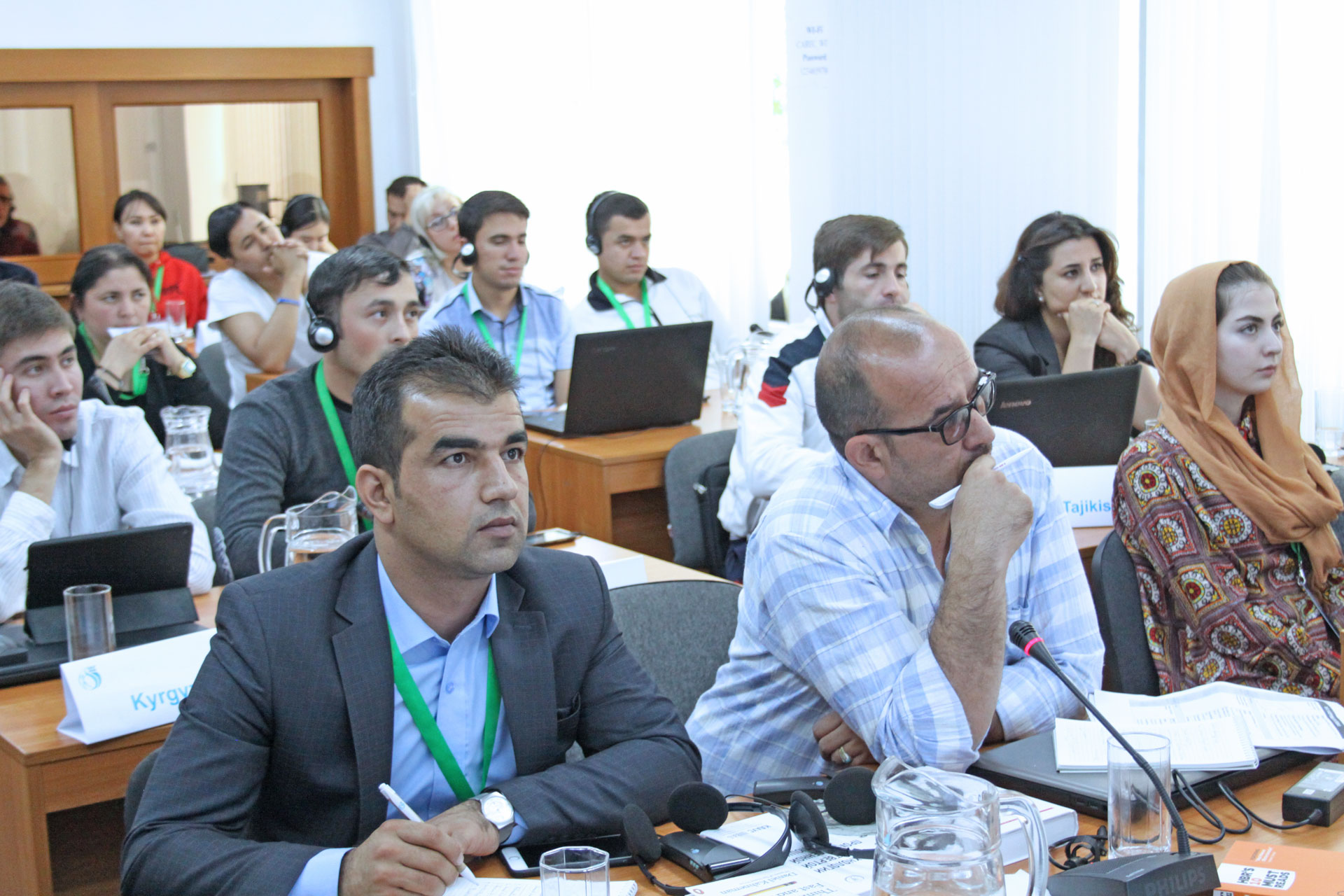
This year, September 17-26, the 9th Central Asian Leadership Programme was held. Among the participants are 32 young professionals from Central Asia and Afghanistan. The programme is conducted by the Regional Environmental Centre for Central Asia in collaboration with the United Nations Environment Programme and with the support of the OSCE, USAID, the World Bank and European Union.
The representative of Tajikistan delegation Tahmina Akhmedova noted that the participants plan to transfer the gained knowledge further after returning home: “We can use presentations, resources and share with our colleagues. Because nothing is done alone. We decided that we would come and we would definitely organize meetings. Maybe small, maybe big ones”.
This year, the CALP’s agenda was closely related to the Central Asian International Environmental Forum held on June 5-8 in Tashkent. The programme reflected the main focus of the CAIEF 2018 - strengthening regional cooperation and making sustainable decisions in the field of environmental protection and sustainable development. In this regard, the 9th CAPL was focused on increasing the capacity of representatives of the public sector. In addition to specialists from government agencies, representatives from the academic sector, business, and NGOs took part in the CALP.
“I've got a lot of new things. Besides the fact that this event is educational, I also had a chance to talk with the colleagues from other countries of Central Asia. We've exchanged experience, I became more familiar with the ongoing environmental policies in their countries, ”said Malika Fayzullaeva, an expert of the State Committee of the Republic of Uzbekistan on ecology and environmental protection.
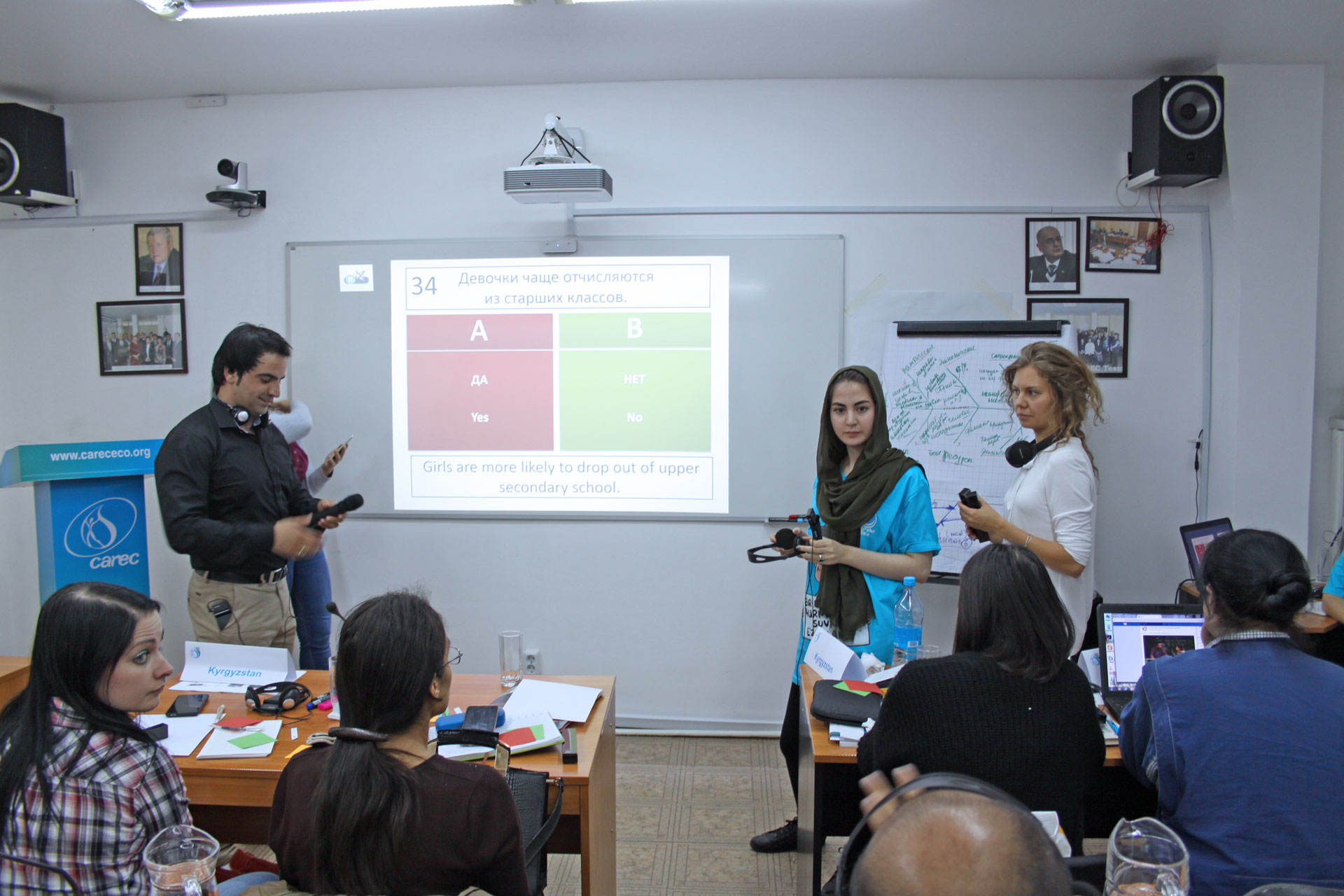
Separately, it is worth noting that the participants of the CALP also represent different sectors. The programme brought together specialists for environmental protection, resource management, agriculture, international relations and other fields.
“Each of the participants on the 9th leadership programme is very interesting as an individual and as a professional. We've exchanged contacts, we are already planning some activities together,” - said Lyazzat Kaibaldiyeva, a participant from Kazakhstan, Ernst & Young consultant on sustainable development.
Lyazzat specializes in the protection of atmospheric air and greenhouse gases. The participant said that she wanted to expand her knowledge in other areas of environmental protection during CALP. “I was very interested in a lecture on introductory cooperation on water resources, the “nexus” approach is something new for me. There was also an interesting lecture on biodiversity. And, of course, on adaptation to climate change. This is related to my specialization, and as a new direction it was very interesting, ”said a participant from Kazakhstan.
Among the thematic areas of the CALP are biodiversity conservation; solid waste management; water-energy-food security; water diplomacy. “All the topics were very interesting. I liked the fact that here they tried to grab all sides. And some legal aspects, and biodiversity, and the conventions. A little bit of everything,” said Maria Chernyavskaya, a participant from Kyrgyzstan, a specialist of the Institute of Biology and Soil Sciences of the National Academy of Sciences of Kyrgyzstan.
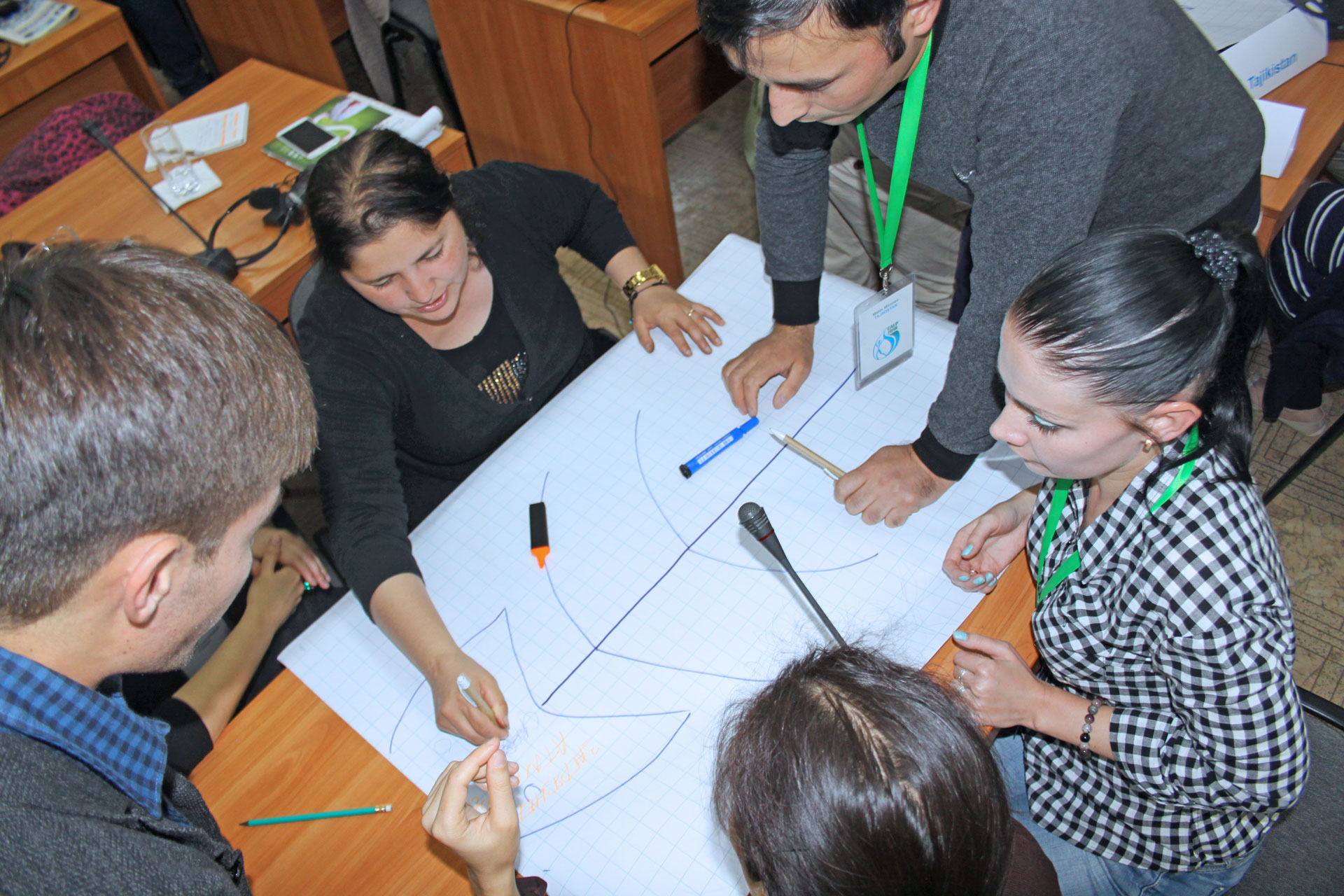
The agenda of CALP also reflected cross-cutting themes: leadership, negotiation, and analytics. “The world leaders rely heavily on data and information. So that they can make the decision more accurate. Because once a decision is made and the work is started, it's very difficult to reverse it”, said the representative of the Afghan delegation Ahmad Behzad Ghyasi, a specialist from the Kabul municipality.
On the final day of the lectures, the CALP participants formulated their next steps and built a “pyramid of sustainability”. This interactive exercise has become a tradition of the Central Asian Leadership Programme. During this exercise, each participant wrote down his or her personal professional goals. These goals formed the foundation of the pyramid. At the next stage, the participants discussed their personal goals within the delegations and found ways to support each other after the end of the CALP.
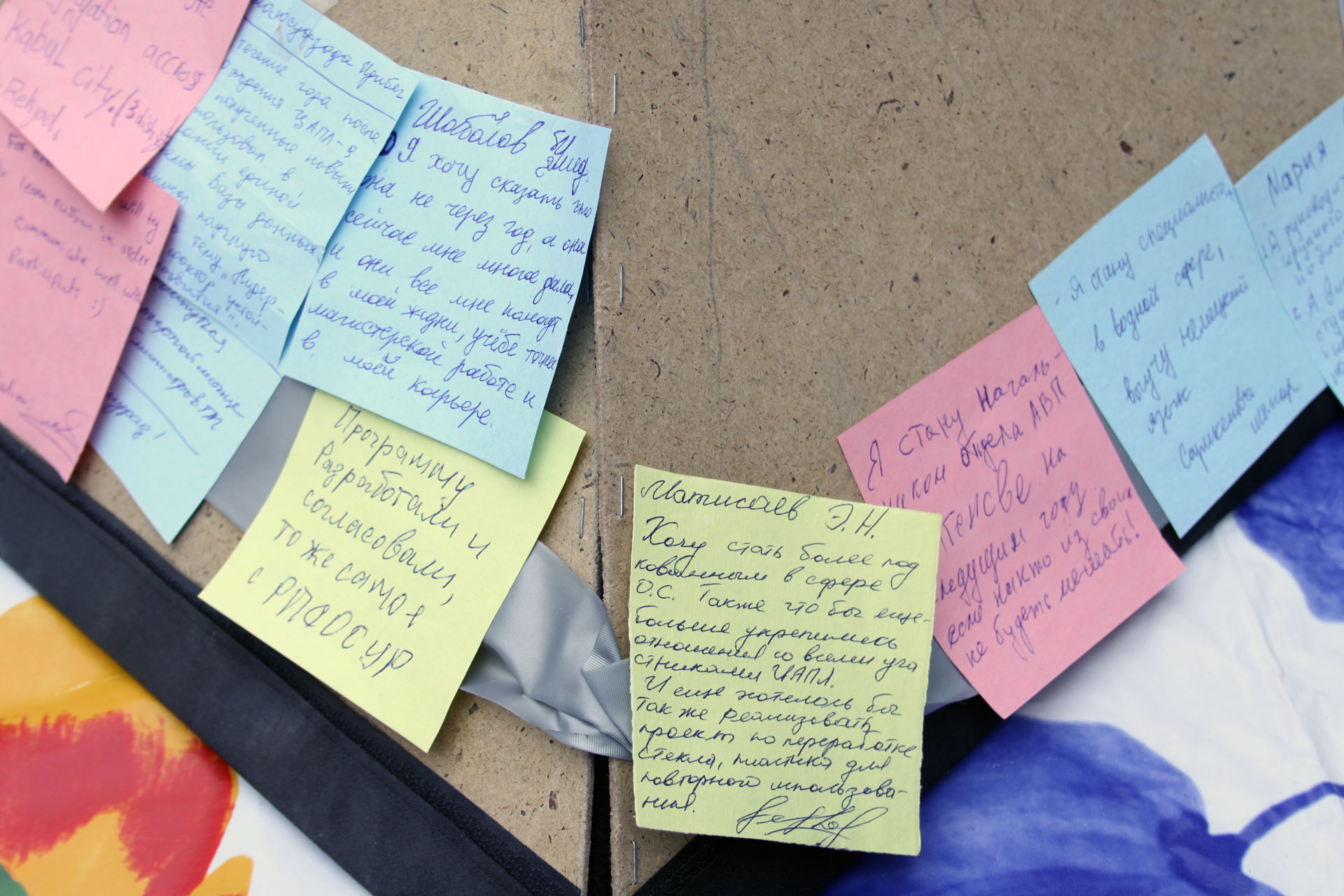
A participant from Turkmenistan, a specialist in the Institute of Desert at the Academy of Sciences of the Republic of Tajikistan, Batyr Kurbanov, said that they and their colleagues set a goal to establish close contact with colleagues from the region, as well as to use the knowledge gained in their work. “By the nature of my activity, I assume that I will often meet with colleagues from the region. The contacts and connections obtained during 9th CALP will be directly and straight used in my work, ”shared Batyr.
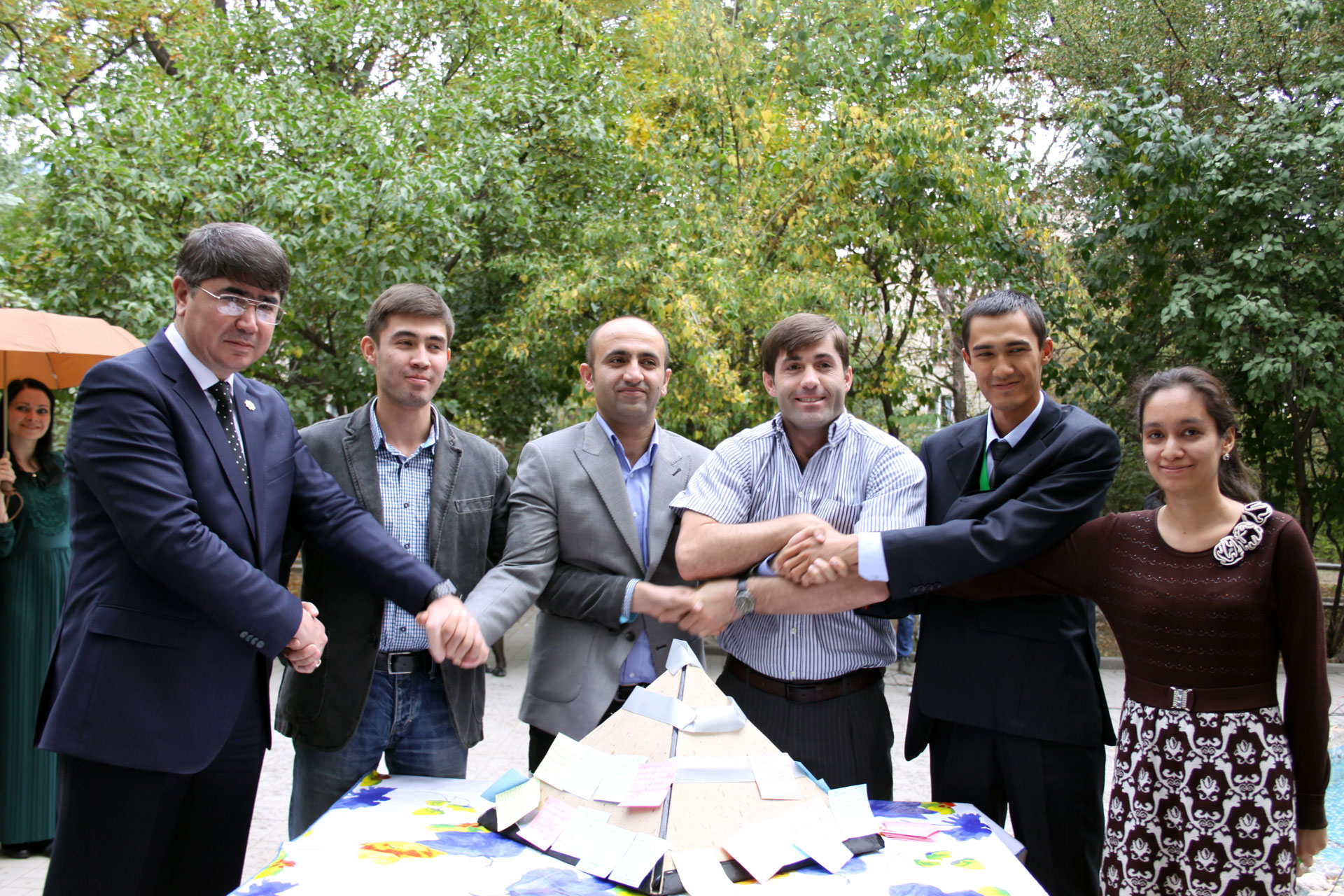
Takhmina Akhmedova, a specialist in a land management project in rural areas under the Committee on Environmental Protection of Tajikistan, said that the delegation from Tajikistan had set several goals. First, to share the knowledge gained at CALP. Secondly, the participants agreed to develop a joint project to demonstrate resource-saving technologies Eco-village.
After discussion, country representatives read out each other's goals. The tasks formulated by the team formed the next level of the “pyramid”. And at the very top, the participants placed a promise to work within the whole region together. The alumni agreed: regional cooperation is crucial for the development of the region.
